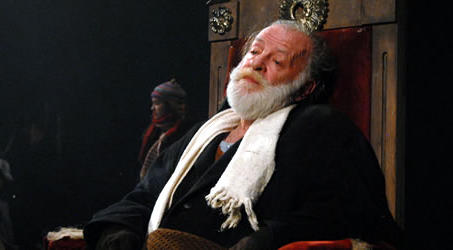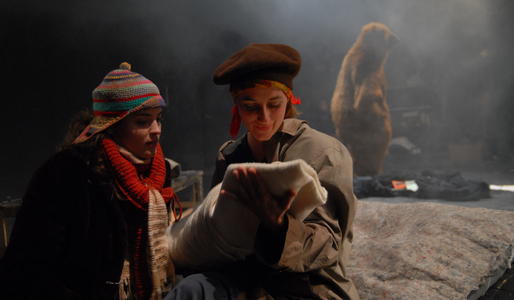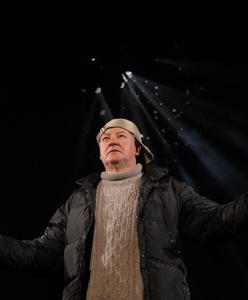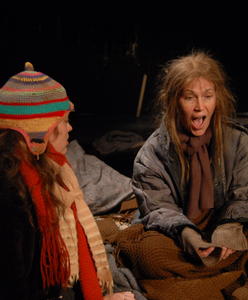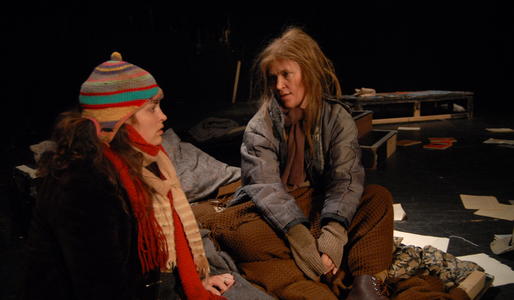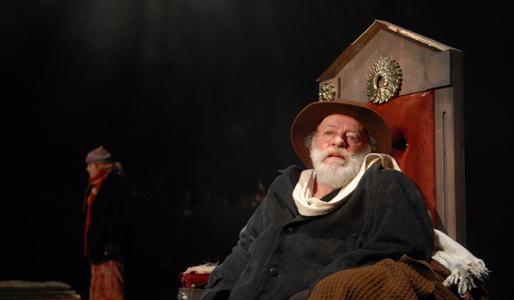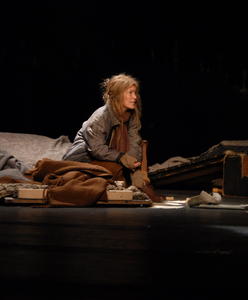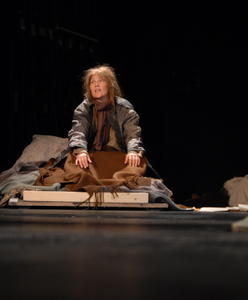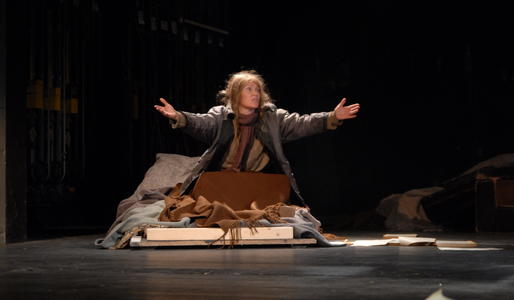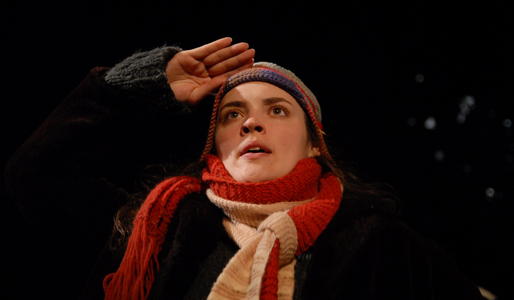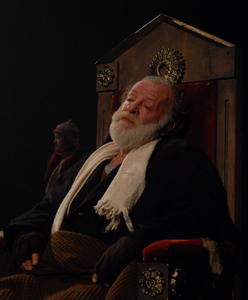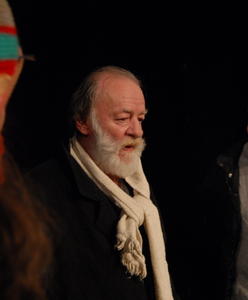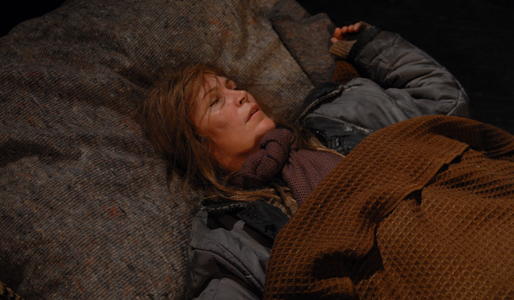tragicomedy about the theatre of life
William Saroyan, American author of Armenian origin, is well-known in this country mainly due to his poetic prose Tracy’s Tiger which belongs to the most original and admired works of the twentieth century. His drama The Cave Dwellers (known here better under the title The World Theatre), put newly on under the title Goodbye, Love, is used to be evaluated similarly in the field of theatre. The leitmotif of Saroyan’s play is a human contact and the need of love: a varied group of people at the very edge of life and society meets accidentally in a hall of an old theatre intended for demolition. These people lost everything except the most valued thing: to be people. And so a magnificent theatre of life, repeating unwittingly the old human rituals remembered as a rule in the worst moments of life, is played in the destructed theatre just before its definitive doom. The warmth of human hands holding one another warms the dusty stage of the old theatre for the last time and brightens up the heartless emptiness with a tenuous promise of future. The spectacular and impressive stage metaphor about the destiny of a modern man, what he is in fact and what small (or big, depending on a visual angle) his needs are, but also about the theatre in us and about us in the theatre, will be put on in the translation by Jiří Josek.

